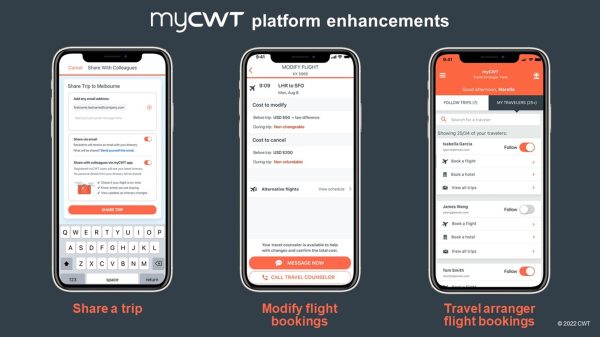BEIJING, 5 April 2024: CWT has introduced a new end-to-end central payment solution for hotel bookings in China.
Developed in partnership with corporate payments specialist AirPlus, the solution is integrated into the myCWT platform. It works for both self-service bookings made using the myCWT web and mobile apps and for travel counsellor-assisted bookings.
It also covers all types of hotel content, including CWT business rates and client-negotiated rates, non-GDS content sourced via aggregators, and CWT’s direct API connections with hotels.

When a traveller books a hotel, their company’s payment information is captured when booking to cover the room rate and deposit. The traveller doesn’t need to provide a credit card at check-in, make any payment at check-out, or keep track of invoices from their stay to get reimbursed by their company. The company receives a consolidated monthly statement for all their travellers’ bookings, with a single, itemised invoice that facilitates easy VAT reclaim and expense management.
“This new solution will address several major pain points for our customers,” said CWT General Manager China Albert Zhong. “The adoption of corporate credit cards and virtual cards in China is relatively low compared to many other markets worldwide. Business travellers here usually first pay for travel expenses out of pocket and then submit tax invoices for all these expenses to get reimbursed. A central payments solution not only creates a much better experience for travellers, it can also help companies gain greater control over their spending, increase policy compliance, improve hotel attachment rates, reduce the risk of fraudulent transactions, and streamline invoice reconciliation.”
CWT already offers central payments for air and rail bookings in China. An energy company and another company from the life sciences sector are the first customers that have signed up to use central payments for their hotel bookings. In the three months since making the switch, they have already seen their hotel attachment rates improve by 50 to 60%, while the use of their corporate negotiated hotel rates has climbed by around 20%






